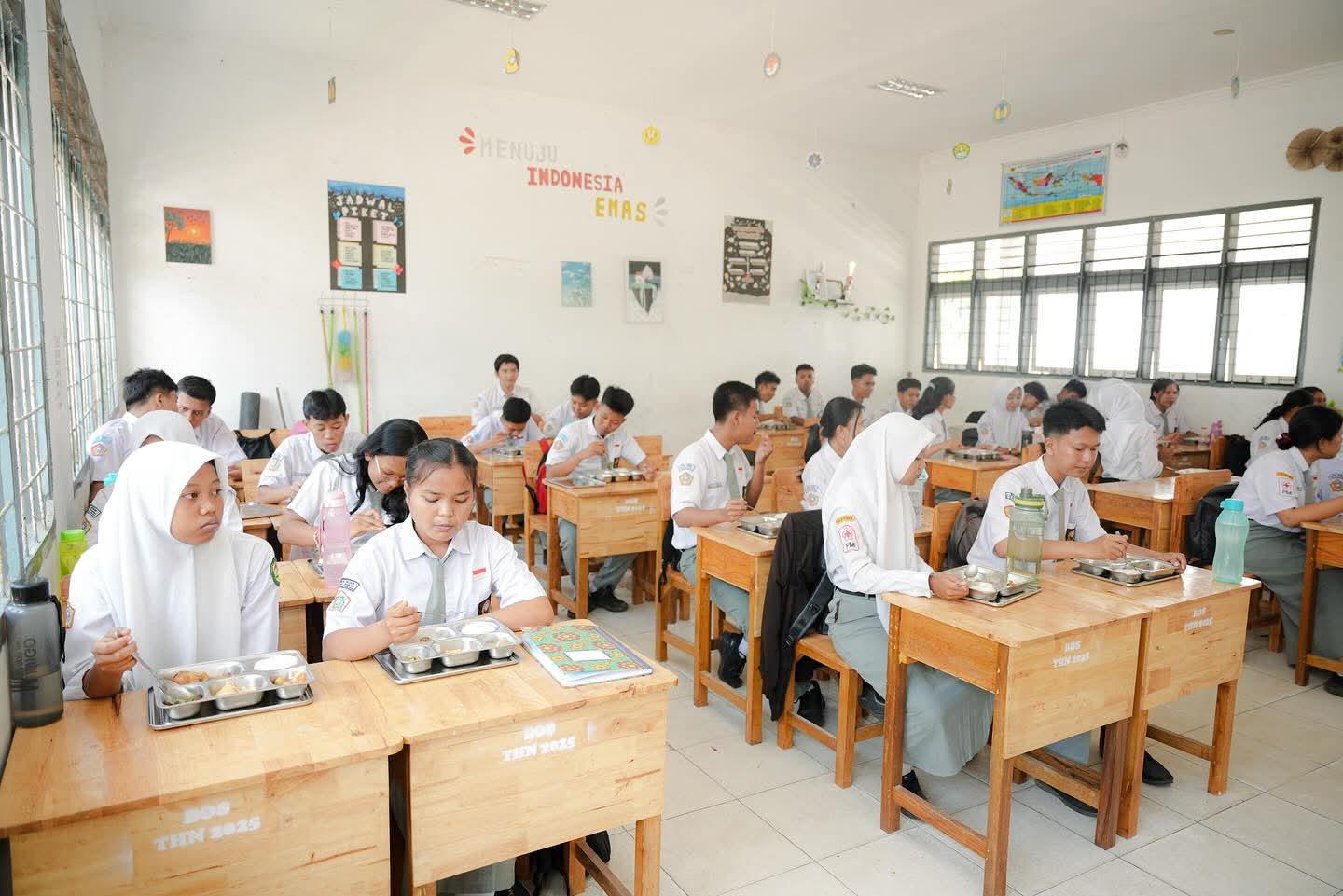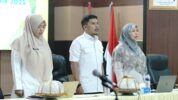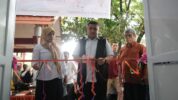Indonesia Showcases Free Nutritious Meals Program at UN to Support Vision 2045
JAKARTA, RAKYAT NEWS – Indonesia’s Vice Minister of National Development Planning, Febrian Alphyanto Ruddyard, introduced the Makan Bergizi Gratis (MBG) program as a tangible effort to support Indonesia’s vision of becoming a developed nation by 2045.
Speaking at a side event titled Feeding the Future: Leveraging Multisectoral Efforts for Productive Human Capital and Engaging Women’s Participation, Ruddyard emphasized the importance of the MBG program in advancing Indonesia’s socio-economic development.
The MBG initiative aims to provide free nutritious meals to school children, pregnant and breastfeeding women, as well as young children under five. However, Ruddyard stressed that the program is not just about food, but encompasses broader issues such as nutrition, health, education, women’s empowerment, food security, and poverty reduction.
As part of a larger effort to build competitive and skilled human resources, the program was discussed in collaboration with the governments of Qatar, Finland, Bulgaria, and Japan, and supported by global organizations such as UNICEF and the Asian Development Bank (ADB). This partnership highlights the international scope of the MBG initiative, positioning it as a long-term investment in human capital.
The event also served as a platform for sharing best practices, identifying challenges, and discussing cross-sectoral approaches to ensure the success of the MBG program. By strengthening partnerships and collective efforts, Ruddyard noted that the program would contribute significantly to the development of Indonesia’s future workforce.
The program’s multisectoral approach involves close coordination between various sectors, including health, education, agriculture, food waste management, community empowerment, and basic infrastructure. According to Ruddyard, Bappenas plays a crucial role in coordinating policy, budget planning, as well as monitoring and evaluation efforts to ensure the program’s success.
One of the key messages from the side event was the recognition that collaboration among sectors is essential for the program’s success. Ministries and institutions must work together to address issues like food security and to ensure that the program reaches all targeted groups effectively.
Looking ahead, the MBG program is positioned as a central component of Indonesia’s roadmap for achieving the Sustainable Development Goals (SDGs) by 2030. Ruddyard highlighted that the program would not only improve public health and education but also contribute to Indonesia’s broader development goals, which align with global efforts to reduce poverty and inequality.
The side event also provided a timely opportunity to prepare for the Second Global Summit of the School Meals Coalition, which will be held in Fortaleza, Brazil, in September 2025. Indonesia hopes that this international forum will result in actionable strategies to strengthen the MBG program, both domestically and globally.
Vice Minister Ruddyard invited all stakeholders, including international partners and local organizations, to join efforts in supporting the MBG program. He emphasized that achieving a healthy, educated, and productive generation is crucial for Indonesia to fulfill its Golden Vision for 2045 and contribute to global development.(Uki Ruknuddin)



























Tinggalkan Balasan